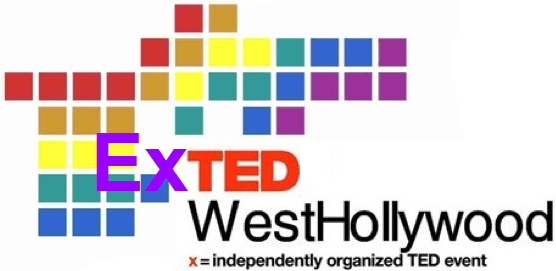TED removes TEDxWestHollywood license: ideas that have ‘failed to gain scientific acceptance’
April 1, 2013
TED has removed the license of TEDxWestHollywood for their planned “Brother, Can You Spare a Paradigm?” event, says the TEDxWestHollywood blog.
The takedown was only a couple of weeks before the April 14 event (and after they had spent more than a year preparing), the blog says.
In an email to Suzanne Taylor, the organizer of TEDxWestHollywood, a representative of TED outlined the objections: “And when we look at your speaker line-up, we see several people who promote — as fact — theories that are well outside what most scientists would accept as credible. … We disallow speakers who use the language of science to claim they have proven the truth of ideas that are speculative and which have failed to gain significant scientific acceptance.”
Pseudoscience or suppression of radical ideas?
So which specific speakers does TED object to? “The names of note they wanted us to qualify for them were Marianne Williamson, Russell Targ, Larry Dossey, and Marilyn Schlitz,” Taylor told KurzweilAI in an email.
“’Pseudoscience’ is their phrase of denigration. When I said that Marianne didn’t fit in the science category, they mentioned a concern lest speakers talk about spirituality. When I assured them that her talk would not be about God or the like (?), they challenged my knowing that speakers weren’t going to veer off into subjects like that.”
Nonetheless, the newly renamed “ExTEDWestHollywood” is moving ahead, Taylor said. “Speakers all are on board — miraculously — and energized.”
A public dialogue needed
“The current worldview needs a sea change to where we become a compassionate humanity, and taking care of one another, species wide, becomes the bottom line,” said Taylor. “This issue of what is or isn’t legitimate subject matter for TED could be the opening for the larger dialogue to loosen the hold on the culture of such a narrow, old, Newtonian, cause an effect perspective.

Graham Hancock gave a passionately argued TED talk in which he described the transformative impact that ayahuasca (containing the drug DMT) had had on him and argued that responsible adult usage of such drugs was a fundamental right. (Credit: video)
“I am suggesting that TED promote the Live Stream of our program, Ex TEDx West Hollywood, as something to watch and comment on. Since their definition of what’s worthy has not sat well with their public, let our program either be the validation of their decision, where it’s plain to see how unworthy our talks are, or be the indication that the parameters they are using need to change.”
TED created a similar recent firestorm by banning talks at TEDxWhitechapel on January 13, 2013 by author Graham Hancock and scientist Rupert Sheldrake from the official TED videos website.
TED instead moved them here for viewing and discussion: The debate about Rupert Sheldrake’s talk and The debate about Graham Hancock’s talk.
Russell Targ speaks out
“In cancelling the TEDx event in West Hollywood, it appears that I was accused of ‘using the guise of science’ to further spooky claims (or some such),” said physicist Dr. Russell Targ in “The debate about Rupert Sheldrake’s talk” on TED Conversations. (Targ was/is scheduled to speak on “The Reality of ESP: A Physicist’s Proof of Psychic Abilities” at ExTEDWestHollywood.)
“People on [the TED Conversations] blog have asked what I was going to talk about . That’s easily answered. I was co-founder of a 23-year research program investigating psychic abilities at Stanford Research Institute. We were doing research and applications for the CIA, Defense Intelligence Agency, Air Force and Army Intelligence, NASA, and others.
“In this $25 million program we used ‘remote viewing’ to find a downed Russian bomber in North Africa, for which President Carter commended us. We found a kidnapped U.S. general in Italy, and the kidnap car that snatched Patricia Hearst. We looked in on the US hostages in Iran, and predicted the immanent release of Richard Queen, who was soon sent to Germany. We described a Russian weapons factory in Siberia, leading to a U.S. congressional investigation about weakness in U.S/ security, etc.
“We published our scientific findings in Nature, Proc. IEEE, Proc. AAAS, and Proc. American Institute of Physics. I thought a TED audience would find this recently declassified material interesting. And no physics would be harmed in my presentation.”
What’s your take on this? Sound off in the comments below.
Note: as of post time, we were unable to get a statement from a TED spokesperson. We will update this post tomorrow with any new information. — Editor
UPDATE April 1, 2013: TED has now posted “A note to the TED community on the withdrawal of the TEDxWestHollywood license” and has opened a discussion on this here. The note states that a TED-like experience should exclude “talks that use the language of science to present speculative claims as fact.” Quoting the TED statement:
The program theme (which has since been edited online) was described this way:
Brother, Can You Spare a Paradigm? will deal with the need to change our fundamental value system or worldview to one in which humanity pulls together, superseding the current worldview where whoever has the most toys wins. The new ideation will be based on what science tells us is a quantum universe, with everything being interconnected and interdependent — one organism that needs to function for the good of the whole.
This language alone raised a red flag. (Characterizing the universe as a single organism is not a tenet of quantum physics.) As more details became available, we made the curatorial judgment that the program was not appropriate for TEDx. Our decision was not based on any individual speaker, but our assessment of the overall curatorial direction of the program.
